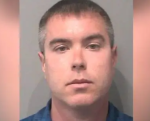NASHVILLE, Tenn.–If you haven’t been directly affected by drug addiction, you’ve been affected by giving up some of your tax money to help fight the opioid crisis. The American Society of Addiction Medicine now says the definition of addiction is a disorder of the brain, not a behavior issue.
“By classifying this as a brain disorder it kind of changes the stigma that’s attached to addiction and then we can focus on solutions,” said Paul Pellinger, an addiction specialist with Recovery Unplugged.
Indiana has spent millions of dollars building clinics, funding programs like needle exchanges and dolling out money to help pay for problems caused by addiction. Last week Indiana received a federal grant of over $18 million to help fight the opioid problem.
Pellinger believes changing the label can help, as long as the label change comes with the understanding that conventional methods of fighting it need to change.
“There are over 70,000 people dying every year from this and we have to come up with a solution.”
Pellinger likened addiction to cancer.
“It’s the same disease. There is no cure for it. It can, however, like cancer, be held in remission,” he said.
Pellinger said Recovery Unplugged is helping people through music therapy.
“So, here’s the secret. The only way people stay clean long-term is if they figure out how to make recovery more of a payoff than getting high.” Pellinger said music can give people some of the same reactions in their brains. “Music appeals to the same pleasure centers of the brain that drugs and alcohol do.”
Audio titled PAUL PELLINGER INTERVIEW RECOVERY UNPLUGGED by 93WIBC
He said the center he works for has several locations that are enlisting the help of some famous musicians to help people who are addicted. The center’s website cites the story of musicians who toured after World War II, to help combat veterans. The therapy Recovery Unplugged employs starts right when the person who is addicted is picked up from the airport and their favorite song is playing in the car, said Pellinger.
Though there is no Indiana location, Pellinger said 90 percent of the people who go into recovery at the center are from somewhere else.
PHOTOS: Chris Davis/Emmis












